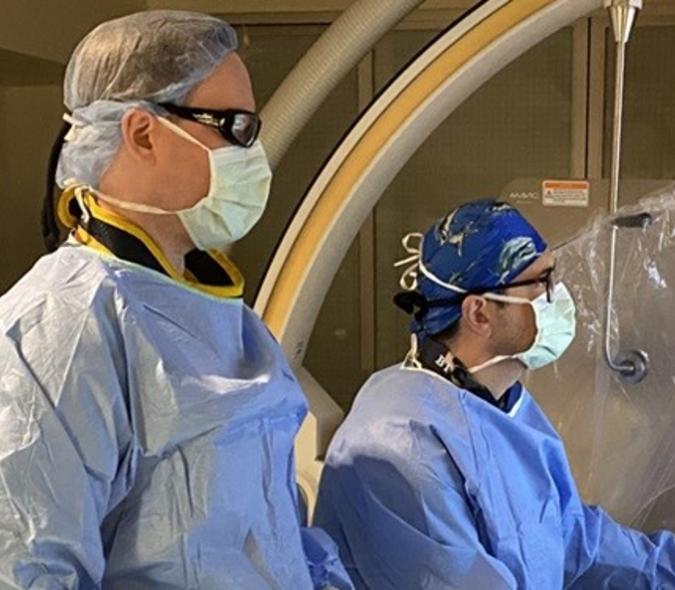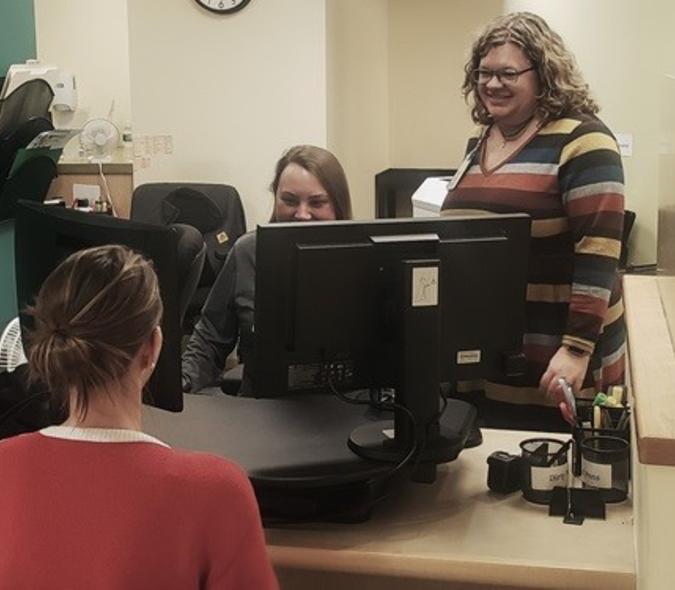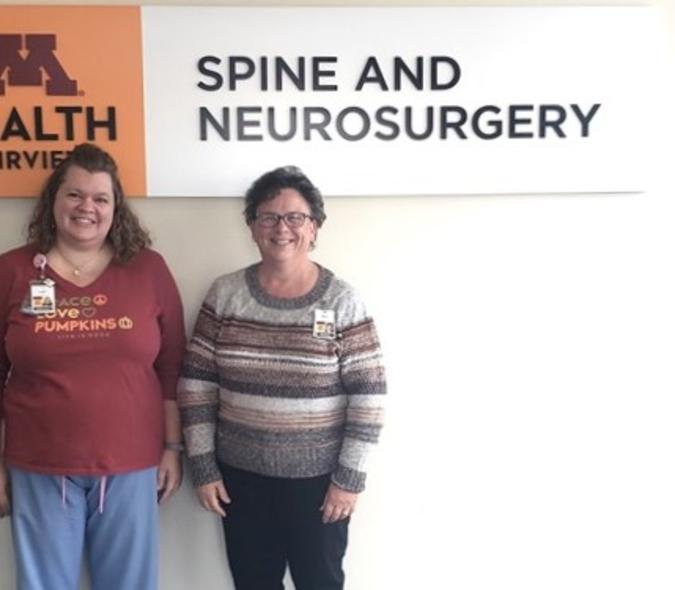
Advocating for neurosurgery and neurosurgical patients takes a village
Ann Stroink, MD, head of the American Association of Neurological Surgeons/Congress of Neurological Surgeons Washington Committee, recently updated Minnesota Neurological Society members about the Committee’s activities and priorities. The Committee is a group of volunteers who passionately and tirelessly advocate for the practice of neurosurgery and its patients.
How do they know which issues to advocate for or against? They survey their members about what’s important to them. Right now, several issues are front and center.
“The top issue is prior authorization,” said Stroink. “Insurance companies are increasingly requiring a prior verbal or written authorization before a test or procedure can be ordered. The tactics used by these companies result in days to weeks of waiting before approval is given, effectively extending the time-to-treatment window. This can be a travesty for those already suffering a neurologic deficit where delay can and will lead to poorer outcomes.”
Many prior authorizations require a scheduled verbal communication between an insurance physician and the treating neurosurgeon, Stroink noted. “Sadly, the insurance physician is rarely a peer neurosurgeon, which leads to a time-consuming educational process to explain the benefits of a test or procedure.
“I don’t think that government officials want their constituents to undergo this kind of delay in their medical care,” Stroink continued. When talking to officials about this issue, she has found it useful to give them a striking example.
Just when you think it's safe...
“A gentleman in his late 50s developed rapid weakness in his right arm and leg and had an MRI that showed a brain lesion with surrounding edema suspicious for cancer,” she explained. “The tumor was in a very eloquent area of the brain and any damage could lead to significant neurologic deficits. Using neuro-navigation was essential for surgical accuracy and preservation of function. My treatment plan was to minimize risk to the patient and maximize full excision of the lesion.”
Stroink’s team was ready to do the procedure. Family members had flown in. “We were notified at the last minute that the insurance company wouldn’t pay for the imaging required to do the navigation portion of the surgery,” she said. “The family wasn’t prepared to pay out of pocket. It’s just not fair. When you pay a health insurance premium, you should get good quality care.”
Prior authorization snafus happen in her own practice often enough that Stroink pays a staff member to handle the hours of time required to go through the process. And she doesn’t think she’s unique. “It’s an unnecessary burden,” she said. “It’s happening to all doctors, but neurosurgical patients are particularly vulnerable because we need to use high-tech imaging such as CT, PET and MRI to take care of their conditions. That type of imaging is a little more costly and insurance companies are trying to reduce their spending in that area. It’s a big detriment to the care of our patients.”
Surprise, surprise
Surprise billing is another area of concern. “The narrative is to call it ‘surprise billing,’ but it’s a situation where insurance companies simply do not provide an adequate panel of specialty physicians in their network for their policy holders,” said Stroink. “You sign up for insurance, however, you don’t realize that if you live in Minneapolis but are visiting Seattle, get hit by a car and go to the ER, your insurance won’t cover that care because the treating physician is in another state and they are out of network.”
How can that be out of network, Stroink asks? “You believe you buy health insurance to cover your health, no matter where you are,” she said. “We’ve discussed possible solutions that could help fix the situation but haven’t had much traction to date.”
Physician shortage
Another issue that’s top of mind for the Committee is the overall physician shortage, which translates into a shortage of neurosurgeons. “Funding for neurosurgery residency has not increased since the 1990s,” Stroink explained. “We’ve repeatedly asked Congress to request additional funding from Medicare for more spots.”
To get the action they desire, the Committee is working with co-sponsors of a bill known as the Resident Physician Shortage Reduction Act of 2019. “We’ve only just started,” she noted. “But I’m worried about the patients we need to take care of now … and in the future.”
The Committee also oversees ongoing work with the FDA on approving new drugs, devices and technology for use with patients. “We want to support innovation,” Stroink said. “It’s important to have ready access to an FDA that is not overburdened.”
Small but mighty
Neurosurgeons may comprise a small part of the physician population, but they cover a wide range of procedures, from aneurysms to stroke and trauma to brain tumors. “Because we are a small specialty, the Committee knows who the right neurosurgical experts are if they need someone to testify about an issue. Communication skills and expertise are required to effectively converse with healthcare stakeholders, the FDA, and members of Congress,” Stroink said. “We can ask these neurosurgeons to come to Washington and help us get issues resolved.”
If there is one thing that Stroink would ask every neurosurgeon to do in terms of advocating for their specialty, it’s to know their elected officials and what’s happening at their own state level. “We ask everyone to think of themselves as a volunteer and recognize that they are the expert,” she said. “The only ones who can speak for neurosurgeons and our patients are neurosurgeons themselves.”



